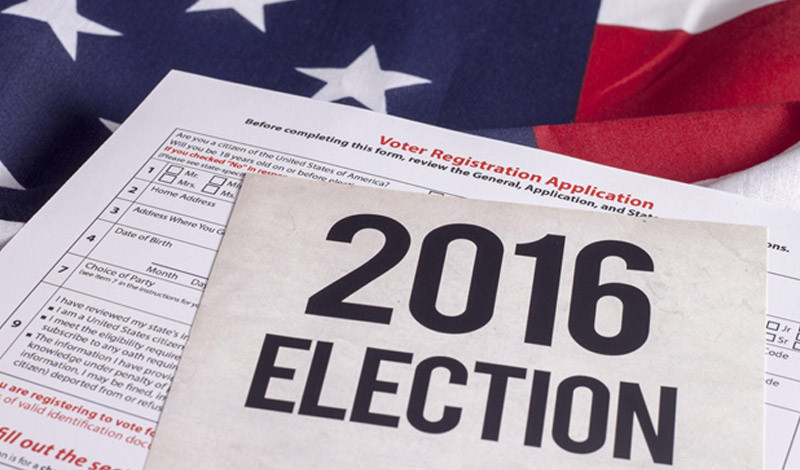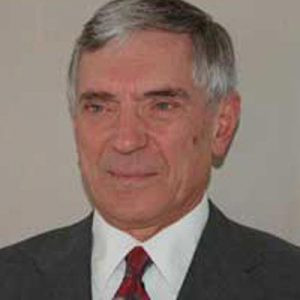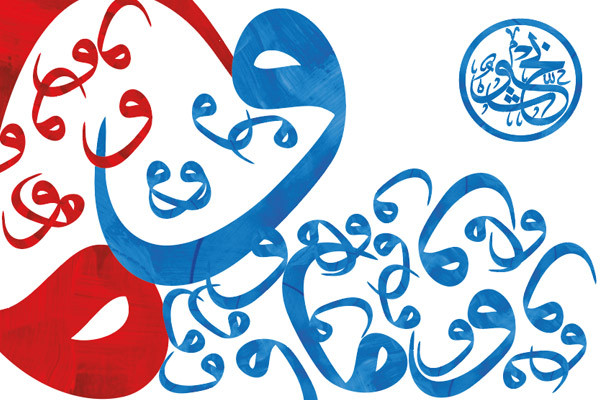Major Candidates in US 2016 Presidential Election
With less than 48 hours separating us from the results of the race to the White House, this article contextualizes the appeal and rhetoric of the two candidates, Donald Trump and Hillary Clinton.

- by DR. Kenneth L. Wise ,
- Sunday, 6th November, 2016
Donald Trump has positioned himself as the outsider ready to bring change. He promises to fix all problems. Trump appeals to persons who feel left out - financially, socially, legally, and religiously. In the name of “letting people speak their mind” he has turned loose the evils of bigotry and bullying and discourtesy. One voter said simply in reasoned tones, “I support him because he’s like me.” This person is tired of trying to hold onto his or her rung on the ladder of social and financial status; this person feels freed by Trump to express attitudes previously not acceptable in polite company, feels justified to push down those minorities threatening from below.
Several risks are inherent in Trump’s oft-changing kaleidoscopic policy positions.
First, he professes that he will rebuild the US military and loose it against Daesh. But US military leaders are as divided as the rest of the electorate; thus many oppose such action. His election would speed up the numbers of top officers resigning from service. Further, if Trump and the Congress were to call for a sizable increase in US “boots on the ground” anywhere in the MENA region, stress in the military would deepen; the forces are still recovering from Iraq and Afghanistan.
Second, as President Trump promises to get a “better deal” with Iran than that negotiated by Obama and the international community. Such an initiative would work against existing understandings and the caution Iran exercises in Syria and Daesh-dominated portions of Iraq.
Third, Trumpian diplomacy would “send a bill” to members of the GCC for US patrols in the Gulf and action in Libya as well as for aerial support and training and advising against Daesh. He would expect the GCC to furnish and pay for sufficient “boots on the ground” to eradicate Daesh.
At the same time, fourth, Trump seems ready to hook up with Putin to do a deal preserving Assad and leaving Iranian interests in Syria intact unless Israel joined the fight the way Turkey has. This may seem to contradict Trump’s other actions. His foreign policy team will provide neither strategy nor consistency in his diplomacy. For foreign policy counsel he has assembled Islamophobes, a Holocaust questioner, and several third-string opinion writers and media personalities. He obviously wants “yes” persons who would admire the king’s new clothes effusively.
In a normal election year, a typical political scientist in the United States would advise, “Discount heavily the more extreme of Trump’s promises and threats or aberrant or radical promises because the Constitution’s checks and balances should permit the other branches of government as well as the news media and financial interests to restrain and constrain him.” Yet 2016 is not a normal political year. Dynamics and limits seem to have dissolved in the echo chambers of Trump rallies.
Trump has led angry followers a step further than any would-be leader since the US Civil War. He has said that if he loses this will be because the system is rigged against him. This plaint reaches his supporters ears as, “The system is rigged against you” – which delegitimizes US democracy. Trump’s continued use of the word “rigged” to describe one US institution after another and claiming that he will win the Presidency unless the elite steal it from him is setting the country up to have serious post-election debates not about public policy but about the legitimacy of its government. Many observers conclude that reaction to a Trump loss could bring public demonstrations and possible violence.
The impact could be deep. US political stability depends less on majority rule than on citizens’ faith that pluralism assures tolerance and dignity in diversity; this faith guarantees liberty but it also requires shared values in community and work, and the right of all to participate in political life. Trump’s values and energetic dismissal of many pluralism groups throws away these requirements.
Hillary Clinton’s greatest handicap is that she represents “no change.” Her major offer to voters is that she is not Trump. Her competitive edges of experience and temperament rub raw against her Republican-generated reputation for crossing legal lines and her practice of keeping news media at arm’s length. The familiar litany of her alleged wrongs span from real estate dealing decades ago to enabling her husband’s moral slippage to “Benghazi” to coziness with Wall Street to the family Foundation.
On issues of import to them, observers in MENA may note that in her early years in politics (before DC) Clinton empathized with Palestine and Palestinian causes. Even today she would have an advantage in pursuing this concern that many in MENA may not appreciate sufficiently: the pro-peace pro-Israel J Street Lobby. Its support gives her maneuvering room for dealing with Iran and Israel because the older “Jewish Lobby” (AIPAC) now has less weight.
More importantly, because of her strong commitment to human rights Clinton may want to push Assad aside and lean toward policies that more openly press Iran both to stay in compliance with the “Nuclear Pact” and to back down in Syria and Iraq. On the other hand, as for marshalling Israel and Turkey along with Russia to achieve these objectives, Clinton has rarely shown much strategic acumen. It would have to come from her national security team. That prospect is improved because much of the Republican Party’s policy establishment has abandoned Trump. Clinton would have her pick of them in addition to Democratic experts.
Under pressure from both Trump and her Democratic opponent in the primaries, Bernie Sanders, she has postured as opposing international trade agreements. But in office Clinton would strive to bring into law as much of the major plans already waiting for approval as she could.
Observers should not overlook Clinton’s personal style. On her State Department watch the leaders of Iran began in 2011 to say the right things about international inspection of its nuclear energy facilities, export of spent fuel, and other technical matters. Yet she knew the timing was wrong in DC (and for a Middle East unsettled by the Arab Uprisings). She needed more time for back channel communication to test Iran’s sincerity and to persuade Saudi Arabia and others in the Gulf to accept a deal. Thus she rebuffed the Iranian initiative, leaving this for her successor. Though this cost her among her more peace-oriented supporters in US civil society, she bore that cost for a better agreement later. She is pragmatic, results-oriented, and not driven to please.
In her administration Clinton would have to cope not only with Russian resistance on some fronts but also with a Congress that will dedicate itself to thwarting her every move at home and abroad, just as it did Obama. Even if voters bless her with a slight majority in the Senate, the likelihood of Democrats taking the House is very low because of how effectively the Republican Party leaders in a majority of states used the 2010 census to re-draw election district boundaries. They have ensured a House majority at least until the 2020 census.
Further, as in nearly every era, domestic issues will dominate the US political agenda. No matter how drawn to resolving international problems Clinton might be, she will every day find herself in battles over health care, immigration, security, taxes, judicial and executive appointments, debt, physical infrastructure, and social needs aggravated by trade. Unable to change them, she will generally follow policies of the Obama administration.

DR. Kenneth L. Wise
Read More
Areas of Expertise
- International Political Issues and Diplomacy
- National Security Policy and Geostrategy
- News Media Analysis
Education
- Ph.D. in International Studies, 1967, School of International Service of The American University, Washington, D.C.
- M.A. in International Law and Organization 1965.
- B.A. in Social Science, Midland University (USA), 1961.
Bio
From 2006 to 2013 Dr. Kenneth L. Wise directed b`huth`s (Dubai Consultancy Research & Media Centre) Policy Research Division and advised the UAE’s Watani social development program. He continues to contribute to bespoke research for b’huth. He directed b`huth conferences on national security and treating terrorism, participated in b’huth’s Terrorism Returnees Study, and contributed to a tribal reconciliation in Yemen. He helped design campaign workshops for candidates in the UAE’s first election—Federal National Council in 2006. For 40 years prior to 2006 Dr. Wise, now a member of the emeritus faculty, taught political science and international relations at Creighton University (Omaha, USA) at undergraduate and graduate levels. He chaired the political science department for more than ten years and co-founded and directed for 25 years the university’s Graduate Program in International Relations. During the North Atlantic Treaty Association’s transition period, 1987 to 1995, Dr. Wise was a member of the Senior Academicians Group advising the NATO Information Directorate and edited the papers of that group’s 1990 conference on integrating into NATO the newly unified Germany and giving new emphasis to NATO’s political role in the security of Europe from the Atlantic to the Urals: a foundation for the Partnership for Peace Program. Dr. Wise has lectured at universities and think tanks around the world such as UK Defence Academy, Council of Europe Vienna Commission on the European Constitution, Council on Foreign Relations (NY City), Foreign Policy Association (St. Petersburg), U.S. Army Command and General Staff College (Ft. Leavenworth), U.S. Strategic Air Command Long Range Planning, German Bundesinstitut (Cologne), Clingendael Institut (The Hague), Asienstiftung (Asia Foundation, Essen), Budapest University of Economic Sciences, Chinese Academy of Sciences (Beijing), University of Twente (Enschede), and U.S. Department of State (scholar in residence).

